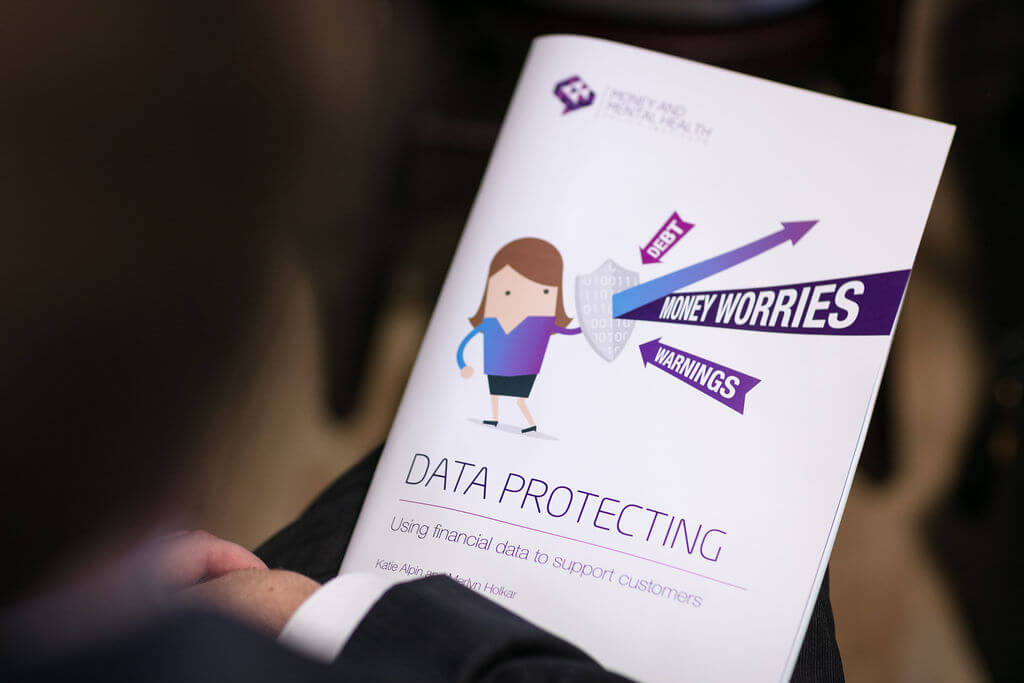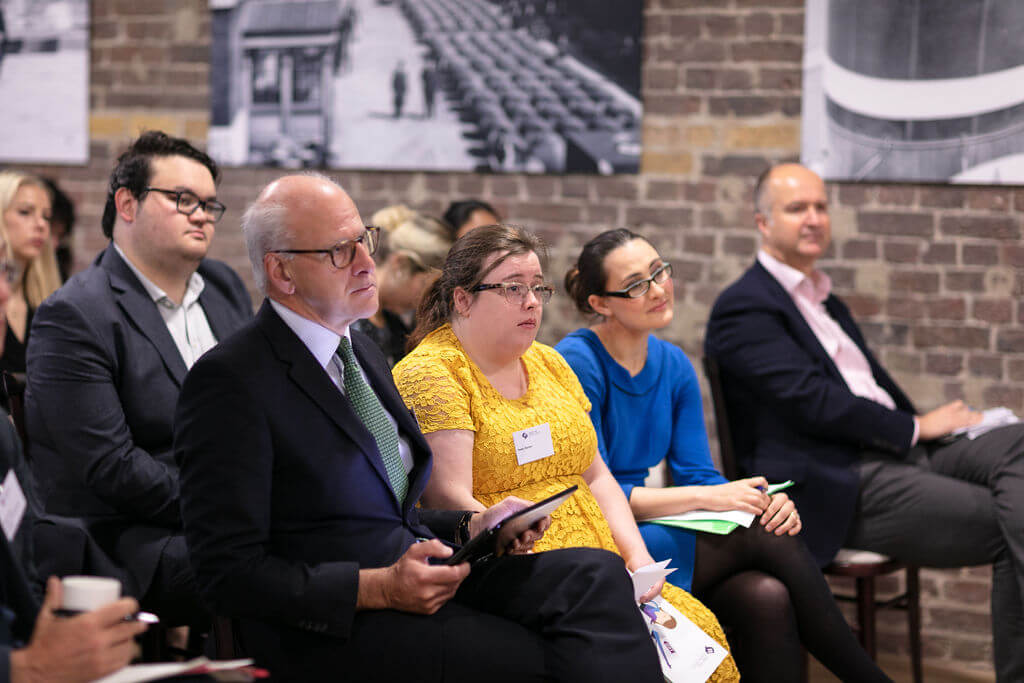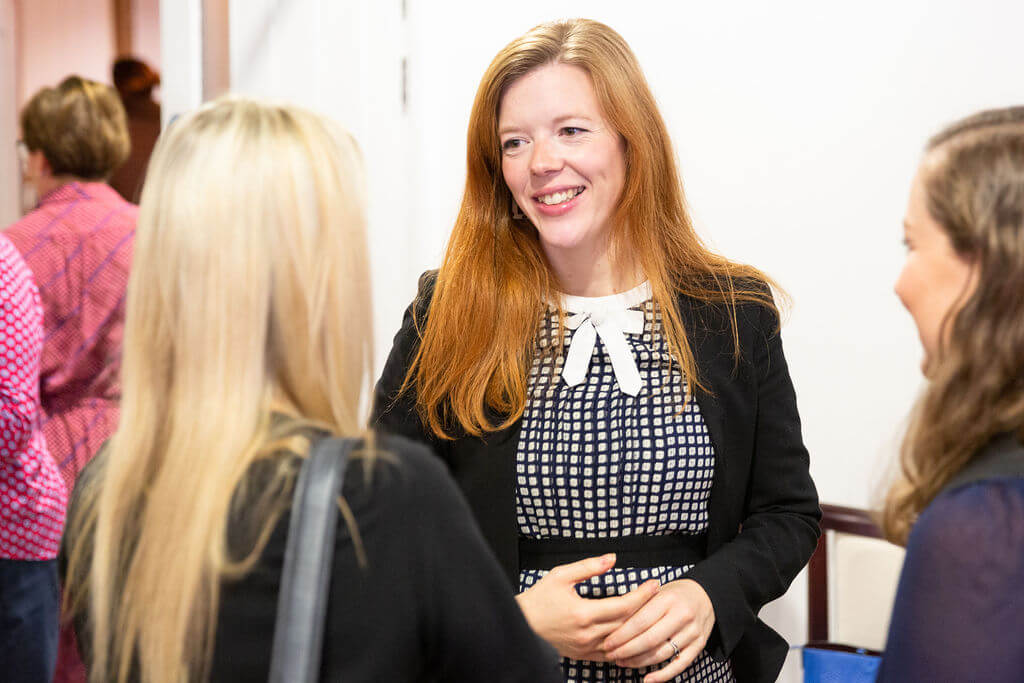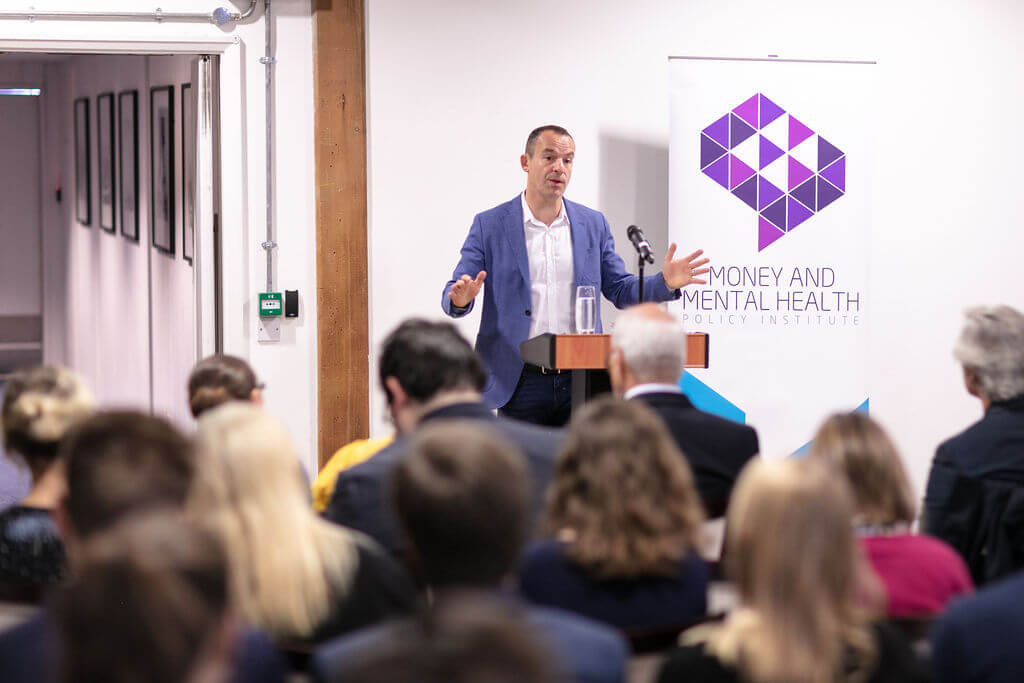

Katrina Gaffney, External Affairs Intern, Money and Mental Health
Event catch up: Launching our new Data Protecting report
29 October 2019
Here at Money and Mental Health we have been excited about our new Data Protecting report for some time, and on Tuesday we finally got to share it with the rest of the world at our launch event in Canary Wharf. The report explores how banks and building societies could use customers’ financial data to identify and support those at risk of financial difficulty. This is undoubtedly a complex issue, but the speakers at our event spoke with such clarity and passion that it was difficult not to feel optimistic about the potential for financial data to be used to improve people’s lives.
Martin Lewis
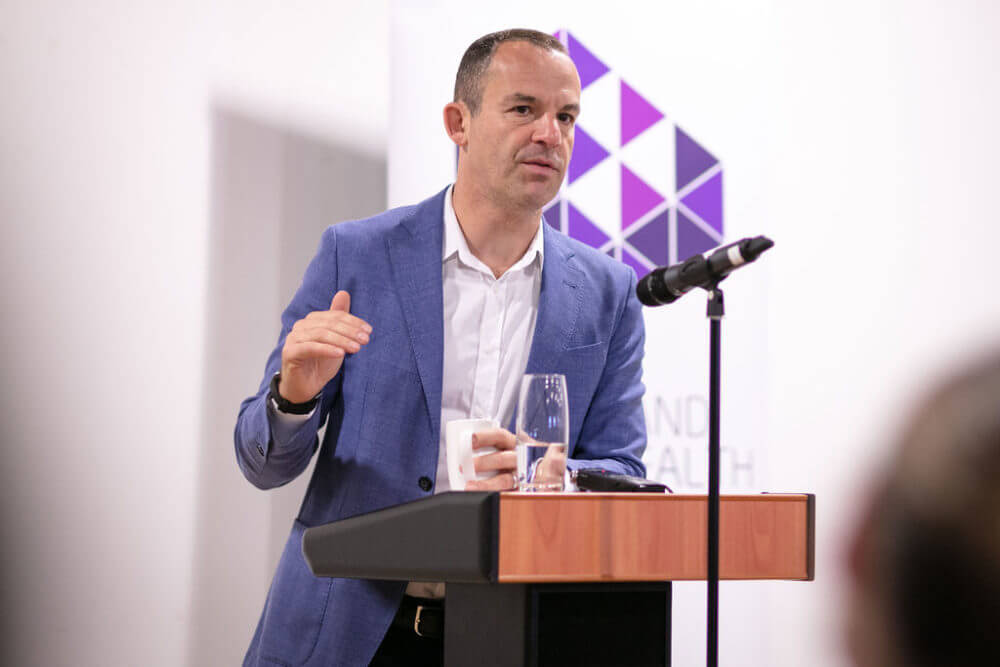
First up, we were delighted to have our Chair and founder, Martin Lewis, share his thoughts on the report. Martin emphasised that money is an issue at the core of everybody’s wellbeing. If a bank has access to somebody’s account, then they have the data needed to assess whether someone is at risk of financial difficulty, and they should do something about it. This doesn’t mean that banks will be diagnosing mental health problems or fixing everything for customers, but that firms can be a “friend that taps on the shoulder” and signposts to support when they see signs of money problems.
Helen Barker
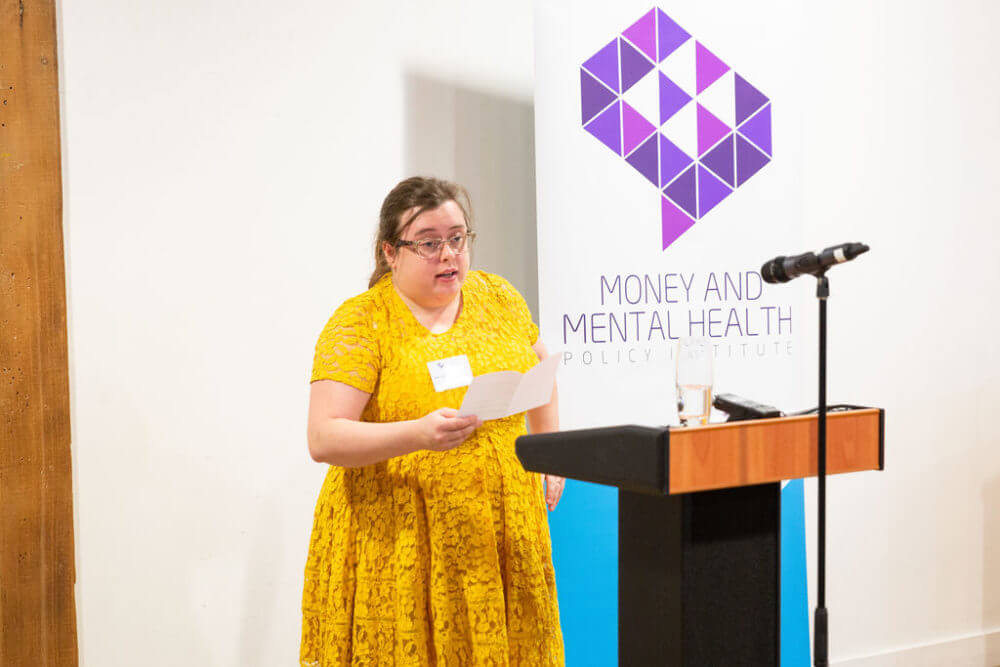
Following Martin we heard from Helen Barker, a member of our Research Community who has previously struggled with her mental health and financial difficulties. It was important for everyone in the room to hear from Helen about the real difference an intervention based on her financial data would have made when she was unable to manage her own spending. Furthermore, Helen encapsulated the spirit of the report when she spoke about the importance of unique consent – she acknowledged that while she would choose this form of protection from her bank, it wouldn’t be for everyone, so customer choice is crucial.
Charles Randell
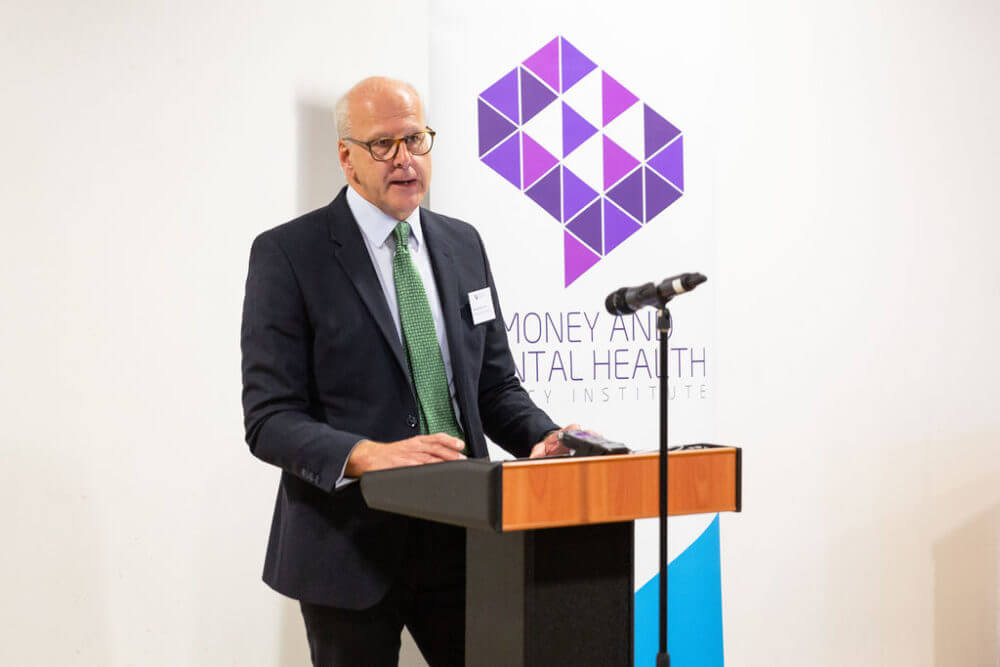
Providing a different perspective, but alluding to a similar point, was Charles Randell, Chairman of the Financial Conduct Authority (FCA), which partnered with Money and Mental Health to launch this project earlier this year. Charles pointed out the potentially fine line between supporting people and depriving them of autonomy – emphasising the transformative impact firms can have in helping people affected by financial difficulty, but also the need to provide support in the way that customers want. The increasingly complex applications of data can make it difficult to get meaningful consent from customers, and so firms and regulators need to work towards making the best use of technological advancements whilst still maintaining customer control. He talked about how the report’s recommendations reflected the FCA’s own draft guidance on vulnerable customers, stating that the report “couldn’t have come at a better time” even if it presented some challenges to the FCA and other regulators.
Katie Alpin
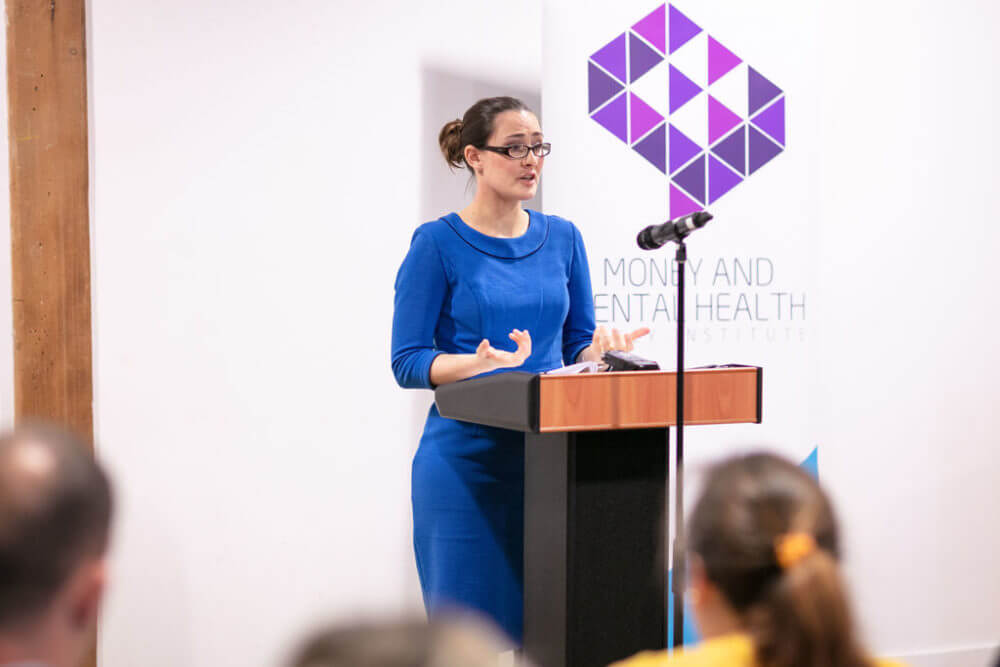
Next, Katie Alpin, our Head of Research and Policy, presented some of the key findings of the report. She highlighted the strong demand from consumers for banks to be carrying out this kind of work: half of adults think that their bank or building society should use their financial data to identify problems and offer support. There was particular enthusiasm for data being used in this way amongst our Research Community members, but it was not without reservation. Their three biggest concerns were about privacy, banks using this information to treat customers differently, and the worry that interventions could have a negative emotional impact. Katie emphasised the need for people to be given choice and control over how (and if) their data is used if banks are to genuinely improve lives through the analysis of financial data.
Roger Taylor

Following on from Katie, Roger Taylor, Chair of the Centre for Data and Ethics Innovation, explained some of the potential considerations which are needed if data is to be used in this way. He pointed out the risk of individuals losing control, while highlighting that we need to be thinking about who can be trusted to handle this data, and who is best placed to offer interventions. Roger questioned whether banks, who have their own commercial interests, would be best placed to solely take on the responsibility of analysing customer’s data, and he backed our recommendation for the creation of ‘data trusts’ to allow some of this research to happen outside of commercial environments.
Raymond Pettitt
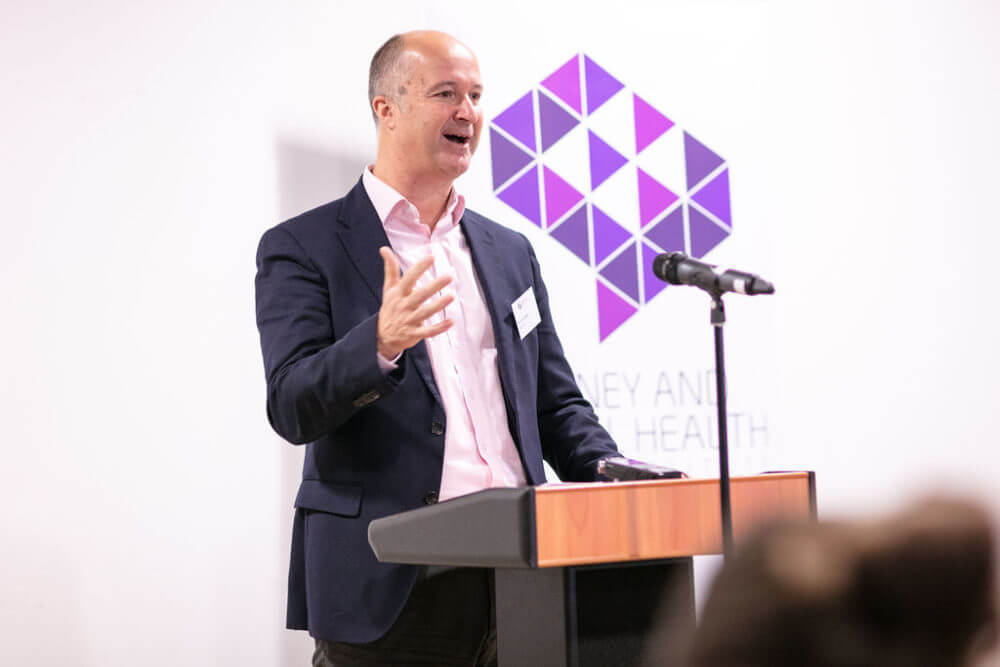
The penultimate remarks came from Barclay’s Head of Retail Segments Raymond Pettitt, who made two particularly important points. He explained that people move in and out of vulnerability throughout their lives and that the practices of financial firms need to reflect this nuance. He also emphasised that, when it comes to protecting and supporting vulnerable customers, firms should not be treating this as a competitive issue. It is only by joining together that banks and building societies can truly understand the needs of their more vulnerable customers.
Finally, Helen Undy, our Chief Executive, offered her concluding remarks in which she contextualised this research within our wider work carried out by Money and Mental Health, and thanked everyone who contributed to the project. The report has been a long time in the making and hopefully it will spark many more conversations about how financial data can be used to support vulnerable customers.
You can read the full Data Protecting report here.
If you are interested in joining our professionals network, you can sign up sign up here.
Images taken by Photographer London
